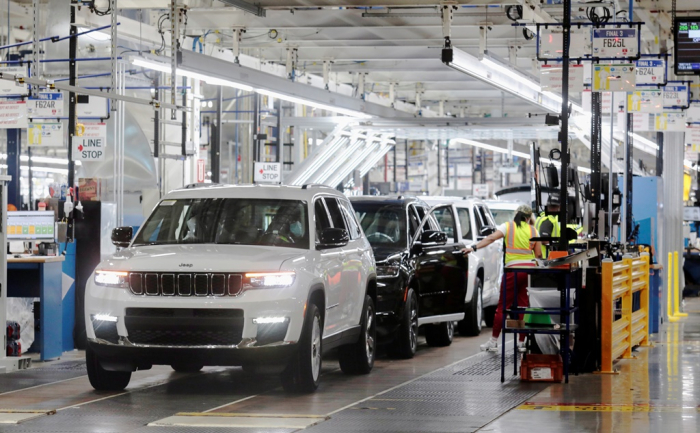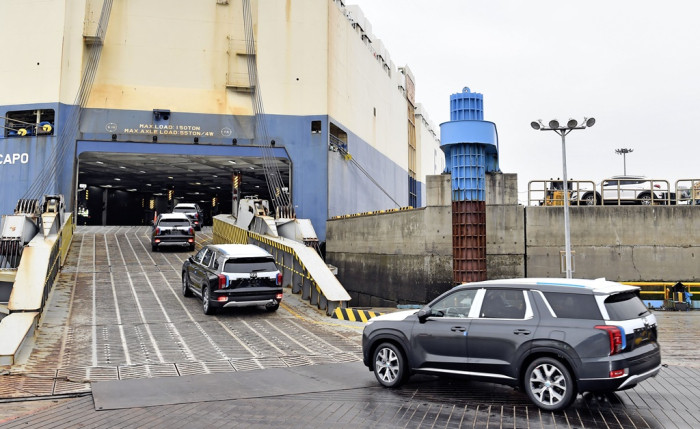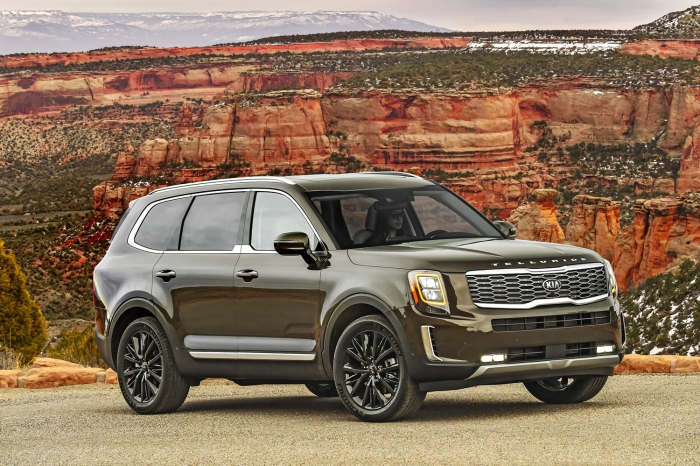Automobiles
Carmakers log strong profits despite chip shortage
Car production falls on the component shortage and COVID-19-related factory shutdowns, while demand surges
By Aug 04, 2021 (Gmt+09:00)
3
Min read
Most Read
LG Chem to sell water filter business to Glenwood PE for $692 million


Kyobo Life poised to buy Japan’s SBI Group-owned savings bank


KT&G eyes overseas M&A after rejecting activist fund's offer


StockX in merger talks with Naver’s online reseller Kream


Mirae Asset to be named Korea Post’s core real estate fund operator



Global carmakers such as Stellantis N.V., BMW, Ford Motor Co. and Hyundai Motor Group surprised investors with strong earnings despite the automotive chip shortage. Automakers defied market expectations that they would report losses as lower supply of the component cut output.
The shortage, along with pandemic-related plant shutdowns, slashed car production. But demand strengthened on governments’ financial support around the globe, increasing domestic travels and "revenge shopping," a post-lockdown rush to purchase big-ticket items and luxury goods. Strong demand amid weak supply lifted new car prices to record highs.
EARNINGS SURPRISE
Stellantis, a 50-50 joint venture formed by Fiat Chrysler Automobiles and Group PSA this year, reported 8.6 billion euro ($10.2 billion) in operating profit for the first half on Aug. 3, exceeding market forecasts by 45%. BMW posted operating profit of 5 billion euro in the second quarter, swinging from a loss a year earlier.
Ford turned to black in the April-June period with operating profit of $1.1 billion. Nissan Motor Co. logged operating profit of 75.7 billion yen ($694.4 million). Both had been predicted to report losses in the second quarter.
Volkswagen AG swung to 6.5 billion euro in operating profit from a loss a year earlier. Tesla Inc., known to use more chips than any other carmaker, reported $1.1 billion profit, beating market expectations.
The same went for Hyundai Motor Group. Hyundai Motor Co. posted 1.9 trillion won in operating profit, a seven-year high, while Kia Corp. enjoyed record-high profit of 1.5 trillion won.

IRONY OF CHIP SHORTAGE
Global carmakers suffered from the automotive chip shortage in the second quarter. Following the failure to predict demand, a fire at a chip plant owned by Japanese Renesas Electronics Corp. intensified the crisis.
Ford could not operate US factories at full capacity throughout the second quarter, reporting a production loss of 700,000 units. Hyundai and Kia suspended operations in South Korea for about 20 days.
Automakers in the world have slashed output by 5.76 million units so far this year, about 9% of total global sales in 2020 due to the chip shortage, according to AutoForecast Solutions.
The lower output, however, improved their earnings as soaring demand ramped up prices. In the United States, the world’s second-largest automobile market, the average price of new cars hit an all-time high of $42,258 in June, up 6.4% on-year, Kelly Blue Book data showed.
The average selling price of Hyundai and Kia cars in the US rose 9.3% to $31,793, while those of Ford, Nissan and Volkswagen rose 9.6%, 1.7% and 9.2 percent, respectively. Ford said revenue per vehicle rose $5,000 in the second quarter from a year earlier. With a longer waiting list for car purchases, Kia’s award-winning SUV Telluride became one of the fastest-selling models with an average of 10 days to sell.

Increasing preference for SUVs and pickup trucks, often more expensive than other models, also improved carmakers’ earnings. The industry used limited chips to produce those vehicles.
The heyday automakers are revelling in, however, may not continue much longer as US car demand appears to have peaked, warned some industry sources.
“Demand has hit a peak and has started declining in China and the US, which overcame COVID-19 more quickly,” said an industry source.
Write to Hyung-Kyu Kim and Il-Gue Kim at hkh@hankyung.com
Jongwoo Cheon edited this article.
More to Read
-
 Business & PoliticsTrump Jr. meets Korean business chiefs in back-to-back sessions
Business & PoliticsTrump Jr. meets Korean business chiefs in back-to-back sessionsApr 30, 2025 (Gmt+09:00)
-
 Korean chipmakersSamsung in talks to supply customized HBM4 to Nvidia, Broadcom, Google
Korean chipmakersSamsung in talks to supply customized HBM4 to Nvidia, Broadcom, GoogleApr 30, 2025 (Gmt+09:00)
-
 EnergyLS Cable breaks ground on $681 mn underwater cable plant in Chesapeake
EnergyLS Cable breaks ground on $681 mn underwater cable plant in ChesapeakeApr 29, 2025 (Gmt+09:00)
-
 Business & PoliticsUS tariffs add risk premium to dollar assets: Maurice Obstfeld
Business & PoliticsUS tariffs add risk premium to dollar assets: Maurice ObstfeldApr 29, 2025 (Gmt+09:00)
-

Comment 0
LOG IN


